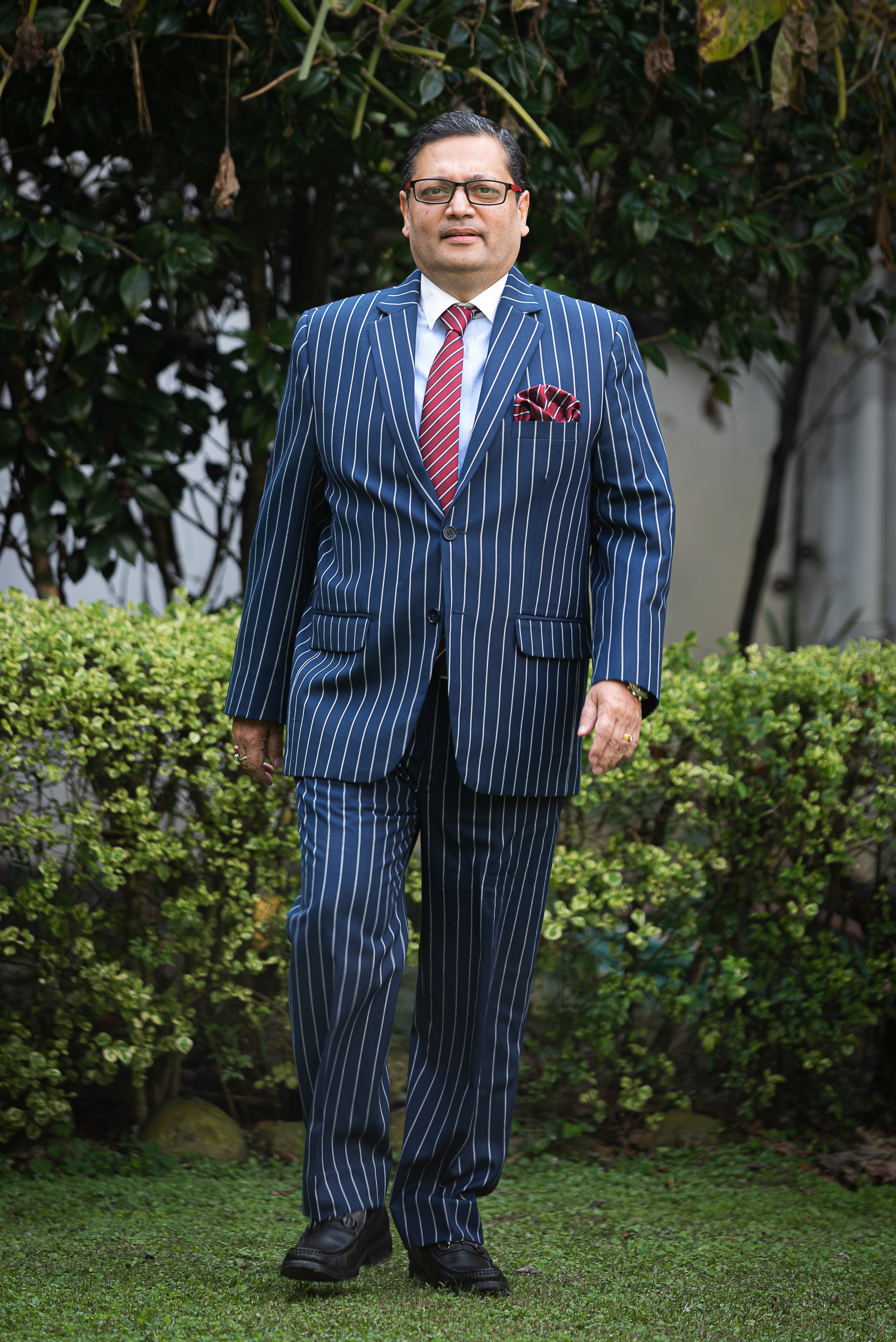My Vision for Nepal | The youth takes leadership in every sector

The youth takes leadership in every sector
Three ways to realize the vision:
1) Encourage merit and qualification in all sectors.
2) Inspire young people to come forward and urge them to take responsible positions in government.
3) Realize that individuals are dispensable. The nation is not.
Massive changes are accompanying the pandemic not only in Nepal but also around the world. While people have lost jobs and businesses are down, the education sector has also been severely hit. It’s easy to see how online classes will replace traditional teaching methods. In a country like ours with a big digital divide and expensive data charges, the structural gap between the have and have-nots will be further compounded by the lockdowns and closures of educational institutions.
The situation is the same in all sectors including research and publication. How are we to reclaim our future? Clouding this picture further is the risk of Nepali migrant labor losing jobs in the Gulf, Malaysia and Korea or the fall in remittance due to various reasons. In the first month of this fiscal, the trade deficit has increased, remittance has fallen and foreign currency reserves have plummeted. While some countries are aiming for a ‘V’ shaped recovery, there is a danger of a ‘K’ shaped overturn which means that while the rich will get richer, the poor and the destitute will sink deeper into poverty.
Last thing Nepal would want at this juncture is political instability. Already we see a waning of public confidence in vital state institutions including the judiciary. In an atmosphere of gloom and economic decline, the political leadership has to come together for the country’s sake.
Interest groups are so entrenched in each sector of our society that they have become barriers to economic growth. Youth leaders in each party therefore have a formidable agenda. They have no time to lose; otherwise they themselves will be old and tired before taking up leadership positions. I personally know many of them. They have the vision and the drive but what they lack is the courage to challenge the incumbent. Well, they have to decide how long to wait, when to strike and how much old legacy to bury. This dilemma is too agonizing but if they continue to wait for the old leadership to gently hand over power, they will also face the same delusion and public apathy.
There is massive outflow of our youth for further studies and employment. The whole country is turning into an elderly home. Barren lands in rural hinterlands exhibit a sorry picture.
What we need as a nation today is a leadership that gives new hope, can deliver on the promises and that encourages merit and qualifications. Whether it is the government-run corporations or our universities, there is an enormous mismatch between people’s expectations and their delivery. The culture of governance therefore has to change. Senior leaders have to recognize the importance of experts in each field.
On the foreign policy front too, it is hard to avoid the conclusion that the current moment is extremely fluid for a country sandwiched between two Asian giants. Last year’s Sino-Indian border clash, the current state of Sino-US relations and the overall prospect of the emergence of a new ‘cold war’ has posed serious challenges for us. Issues and relationships are the same, the political geography is the same but the risks of error in foreign policy have grown manifold.
Therefore, the regional situation is compelling us to pursue our international relations in a more robust manner. As Chair of SAARC, we cannot afford to sit back and simply watch the regional tensions. We have to play a more visible role in BIMSTEC, the UN and multilateral organizations. Our envoys abroad hardly ever serve out their full tenure. They have to work hard to maximize options, expand the space for Nepal and also show concrete results.
The bitter truth is that big power rivalry is already becoming vicious in South Asia and inside Nepal. The moment there is a small protest against Indian border encroachment, I see a small demonstration against China and then a rally against the MCC in Kathmandu. This sort of proxy brinkmanship to outdo the other by using domestic forces is what converted Afghanistan from a peaceful nation to a battlefield. I pray that we Nepalis do not take the road to former Yugoslavia via Afghanistan.
At each stage of our modern history, we have carefully calculated and re-calculated our bilateral relations with our two neighbors, as well as with the US and Europe, and reaped benefits while safeguarding our sovereignty. Nepal is the oldest sovereign nation state of South Asia. Regimes have fallen and we have changed six constitutions in five decades but no government has compromised on territorial integrity. Steady elements of our foreign policy have not changed but simply conducting routine work is no longer adequate.
Again, coming back to my larger vision for my country, I hope it is inclusive and takes all sections of the society along but also encourages merit and qualification. We are witnessing a decay in democratic values with gross politicization of all vital state institutions and this has led to public frustration. The constitution, which is just a few years old, is under stress as the big and mighty themselves don’t obey the rules. Energetic and competent youth are leaving the country in droves. In order to overcome all these challenges, the youth now need to take up leadership positions not only in the government but also in the private sector.

Quick Questions:
Can you name a few IR books for general readers that have made the biggest impact on you?
Ambassador Madanjeet Singh’s ‘Culture of the Sepulchre’. As an Indian diplomat posted in Idi Amin’s Uganda, it is a fascinating read for all practitioners of diplomacy and also for students of international relations.
What is the biggest challenge of working in the field of foreign policy in Nepal?
Although we face big challenges and our resources are scarce, we could still do a lot more if the senior leadership undergood the gravity of the situation.
If you could enumerate three biggest foreign policy challenges for Nepal, what would they be?
First, lack of political consensus on foreign policy among major political actors. They say one thing in private and another in public. Second, lack of trust and credibility among international actors. ‘Who is the final voice in Nepal, such as President Xi in China and PM Modi in India?’ foreign ambassadors usually ask me. Third, political instability.
related news
My Vision for Nepal | See Nepali women’s football team lift SAFF championship
April 18, 2022, 9:43 p.m.
My Vision for Nepal | A top global tourist destination
April 11, 2022, 6:19 p.m.
My Vision for Nepal | A clean country built on sustainable and socially inclusive waste management
April 5, 2022, 12:42 a.m.
My Vision for Nepal | Internationally acclaimed Nepali movies
March 28, 2022, 8:02 p.m.
My Vision for Nepal | Equal respect for all genders: male, female and queer
March 21, 2022, 7:11 p.m.
My Vision for Nepal | Economic growth and socio-economic development
March 14, 2022, 2:29 p.m.
My Vision for Nepal | Zero trafficking of Nepali people
March 7, 2022, 5:13 p.m.
My Vision for Nepal | A healthy, educated, and hospitable country
Feb. 28, 2022, 7:47 p.m.











Comments